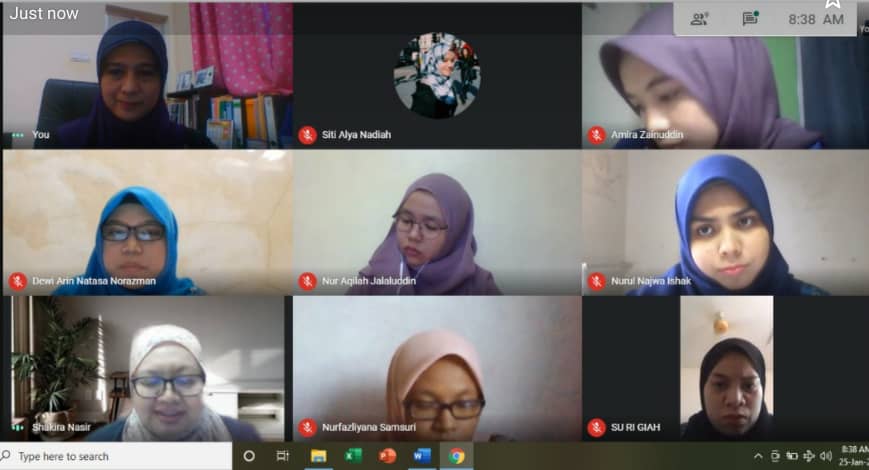By Zeti Azreen Ahmad and Shakira Nasir
Internship attachment is regarded as a standard requirement for undergraduates pursuing Communication programme in most universities in Malaysia (including IIUM) where such opportunity offers practical learning experience in the industry.
The attachment at the actual work place, where students are exposed directly to handling assignments or managing programmes and issues, would provide them with precious learning experiences. Apart from that, the practical training provides interns the opportunity to learn new knowledge, acquire necessary skills, and help build networking with industry players through interactions with host supervisors, staff members and stakeholders.
There is no doubt that the practical experience accrued from internship attachment would increase the potentiality of students’ employability in the industry in future when they graduate from the university.
Over the years, on-site internship has been a tradition where internship attachment requires interns to be physically present at a work place or setting and to report to an assigned supervisor in a host organisation. However, since last year, because of the COVID-19 pandemic and the imposition of restrictions following movement control order (MCO), virtual internship has become a new norm, where students are required to switch from on-site format to virtual mode. This also follows instructions from the Ministry of Higher Education that effective 18 March last year, regular teaching and learning be put on hold, including internship programme, in compliance of the government order to break the chain of infections.

A similar fate is in store for students who are currently pursuing internship attachment starting this month. The implementation of the second MCO (or MCO 2.0) has caused organisations to close their premises or forced them to request their staff to work or operate from home. In relations to this development, most organisations have decided either to postpone their offer of internship placement to university students or to choose the option to conduct internship online.
In any case, virtual internship is a common practice among organisations conducting virtual businesses, especially among small and medium sized enterprises (SMEs) and non-profit or non-governmental organisations. It is considered a good option that allows host companies or organisations to recruit talents from all over the world without having to think about relocation or providing additional work space.
Similarly, virtual internship provides a wider horizon for students to do internship miles away from their home country. The COVID-19 experience has further necessitated virtual internship. In this context, pursuing internship online is not an option, but rather a requirement to minimise risks of exposure to the virus.
At this critical juncture, ensuring interns to continue with their work-based learning within a safe environment cannot be compromised. Nonetheless, online internship also has a myriad of challenges that should not be overlooked.
A research conducted on virtual internship last year revealed several challenges faced by Communication students who pursued their internship online. Due to poor internet connection and delayed communication with host company / organisation supervisors, communication barriers were cited as among major issues experienced by interns.
Virtual internship largely relies on usage of computer-mediated communication between interns and their host organisation’s supervisor. In this context, attention to technical aspects of communication such as a stable internet connection, virtual private network (VPN), available software and computers, should not be overlooked by the interns as well as host organisations’ supervisors.

In addition, interns also experienced difficulties in executing their tasks in the absence of real time communication with their supervisors. A few claimed that their supervisors were too occupied with their work, hence hardly had the time to assign them the required tasks in a timely manner.
It is therefore important to note that frequent communication is essential as it enables interns not only to understand their tasks well but also to immerse themselves with the norms and work culture of an organisation. Infrequent and delayed communication will most likely affect interns ability to deliver quality tasks, thereby holding back their progress. Hence, identifying a suitable communication platform that could facilitate regular connectivity and mentoring process, should not be taken lightly.
Just like working from home, the practical training carried out from home turned out to have longer working hours. Some interns felt anxious as they did not know when their daily tasks would end. Thus, the flexible hours adopted for virtual internship should have a clear-cut duration.
Another challenge observed is that a long duration of online internship had also lowered interns motivation, subsequently affected their performance. In the absence of in-person communication with others at work, interns can easily feel detached, thus further affecting their morale and enthusiasm to work.
Therefore, interns need to be informed of the pros and cons of virtual internship. They should be reminded of the important criteria to succeed in on-the-job training online that includes self-directed, self-motivated and high tolerance for remote work condition. The ability for interns to work with minimal supervision and competency in using multiple media platforms to stay connected is vital.
Virtual internship also requires interns to have the right mindset, to be proactive and to always have the drive and motivation to learn despite the constraints they experienced online.
All in all, students, host company or organisation and universitys internship coordinator should be aware of the limitations of virtual internship and will have to collaborate closely to make the internship programme workable.
As we are living in this unprecedented time, a guideline for virtual internship, particularly during the pandemic, is necessary. The guideline will enable students, host organisations and universitys internship coordinators to understand their roles and to demonstrate high commitment in ensuring a meaningful virtual internship programme.***
